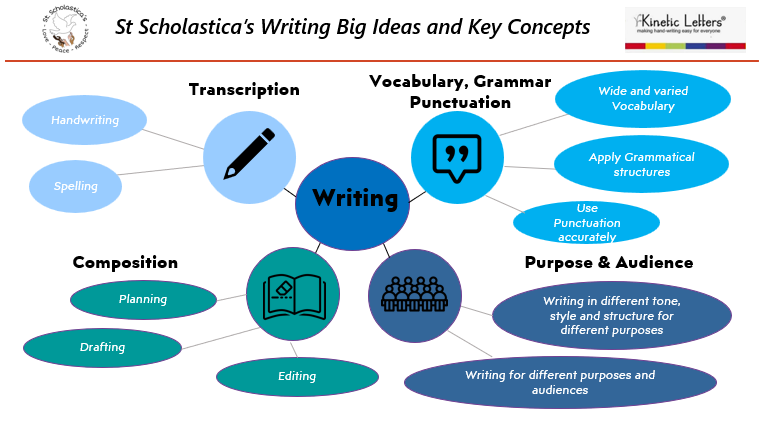Our writing curriculum is guided by the National Curriculum and is structured around the following domains: Transcription, composition, vocabulary, grammar and punctuation and handwriting.
Transcription focuses on the technical aspects of writing:
- Spelling: Pupils learn accurate spelling, including common words and more complex vocabulary, through systematic phonics and spelling patterns.
- Handwriting: Emphasis is placed on developing legible, fluent handwriting appropriate for different tasks.
Composition involves the creation of written content:
- Planning and Drafting: Pupils are taught to generate ideas, organise them logically, and draft text for clarity and coherence.
- Editing and Evaluating: Revising and improving drafts for grammar, punctuation, and word choice is a critical component.
- Writing for Different Purposes: This includes narrative, non-fiction (reports, explanations, instructions), persuasive writing, and poetry.
Vocabulary, Grammar, and Punctuation ensures pupils can:
- Use a wide and varied vocabulary to enhance their writing.
- Apply grammatical structures effectively.
- Understand and use punctuation accurately to aid clarity and meaning.
Writing Across a Range of Contexts and Audiences emphasises versatility in writing:
- Tailoring tone, style, and structure to the intended audience and purpose.
- Exploring a variety of genres, from stories and poems to formal letters and persuasive essays.


